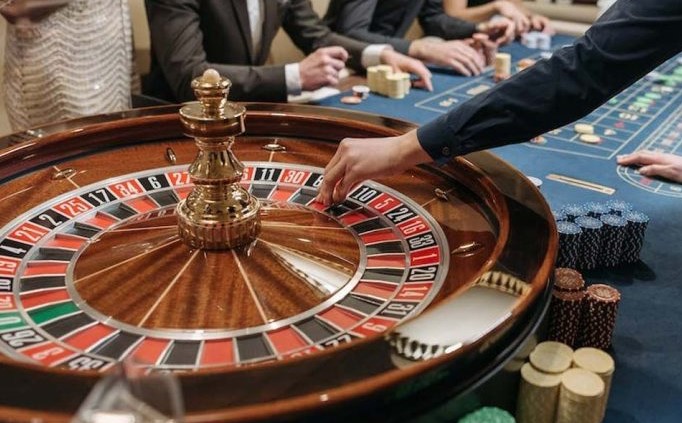Casinos are expertly designed to keep you engaged and entertained, enticing you to stay longer and spend more money. The science behind casino design is a fascinating blend of psychology, architecture, and strategy. In this article, we’ll delve into the intricate details of how casinos are designed to captivate and retain their patrons.
The Layout and Design
The layout of a casino is meticulously planned to create a stimulating environment. Casinos are often labyrinthine, with winding paths that lead players past rows of gaming machines and tables. This layout is intentional, as it encourages exploration and keeps players immersed in the gaming experience.
Colors, lights, and sounds are also key components of casino design. Bright, vibrant colors are used to create a sense of excitement and energy, while soft lighting and soothing music can make players feel more relaxed and comfortable. The constant cacophony of slot machines, combined with the occasional jingle of a jackpot win, adds to the overall sensory experience.
Psychology of Casino Design
Casinos leverage principles of psychology to keep players engaged. One common tactic is to create a sense of anticipation and reward. Slot machines, for example, use a technique known as “near misses,” where the reels stop just short of a winning combination. This near-win can be more motivating than a loss and encourages players to keep trying.
Casinos also manipulate perception of time and space. By removing clocks and windows, casinos create a timeless environment where it’s easy to lose track of time. This can lead players to stay longer than intended, especially when they’re caught up in the excitement of the games.
Comfort and Convenience
Despite their complexity, casinos prioritize comfort and convenience for their guests. Comfortable seating, ample lighting, and easy access to amenities like food and restrooms are all essential elements of casino design. Well-designed signage helps players navigate the casino floor and find their favorite games quickly and easily.
Security and Surveillance
In addition to creating a welcoming environment, casinos also prioritize security and surveillance. State-of-the-art technology is used to monitor the casino floor and ensure the safety of both guests and employees. Surveillance cameras are strategically placed to deter fraud and other criminal activities, helping to maintain a fair and secure gaming environment.
Conclusion
The design of casinos is a blend of art and science, carefully crafted to keep players entertained and engaged. From the layout and ambiance to the psychology behind the games, every aspect of a casino is designed with the player in mind. Next time you step into a casino, take a moment to appreciate the thought and effort that went into creating the ultimate gaming experience.
FAQs
How do casinos use music to influence players?
Casinos use music to create a specific atmosphere, often choosing songs with a fast tempo to create excitement and energy. Slower music may be played in areas where players are encouraged to relax and stay longer.
Why are casinos often designed without clocks or windows?
By removing clocks and windows, casinos create a timeless environment where players are less likely to be aware of how long they’ve been playing. This can encourage them to stay longer and spend more money.
What role does architecture play in casino design?
Architecture plays a crucial role in casino design, influencing everything from the layout of the gaming floor to the overall ambiance of the space. Well-designed architecture can enhance the gaming experience and attract more visitors.
How do casinos ensure a fair gaming environment?
Casinos are closely regulated to ensure fair play. They use a combination of surveillance cameras, security personnel, and gaming regulations to prevent cheating and maintain integrity in their games.
Are there regulations governing casino design?
Yes, there are regulations that govern various aspects of casino design, including building codes, safety standards, and gaming regulations. Casinos must comply with these regulations to operate legally and ensure the safety of their guests.

